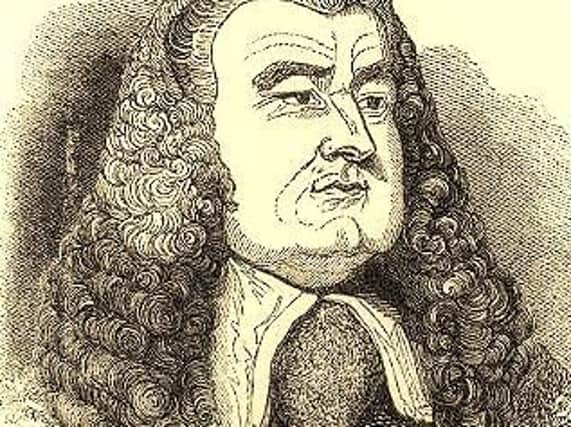Preston cotton mill boss fined for seduction of young woman


At the mid-August 1835 Lancaster Assizes the civil Nisi Prius cases were held before Baron Abinger, the Lord Chief Baron of the Exchequer. Amongst them was a case of seduction brought by Mr. Parkinson, who owned the Ewood Bridge cotton mill near Haslingden, against Mr. Kilshaw, formerly of Garstang, who had three years earlier been in partnership at Garstang with the plaintiff.
Since that time Kilshaw had removed to Haslingden and had the Irwell Vale Mill erected there.
Advertisement
Hide AdAdvertisement
Hide AdBefore proceedings got under way His Lordship stated that due to the nature of the case all females had to withdraw from the court room. Miss Parkinson, who was described as a remarkably good looking young lady, was the first to testify.
Stating that she was the eldest child of Mr. Parkinson and that she had six brothers whom she looked after, as well as keeping the house in order.
She explained that she had been acquainted with Harry Kilshaw for three years, when he had begun lodging in their neighbourhood, being introduced to him by her eldest brother.
He had been in the habit of visiting her father and had always paid attention to her. She then stated that in November 1832 after making his feelings known to her Kilshaw asked her father for permission to be her suitor. The only objection entertained was the disparity of years – the defendant being 40, and Alice being 27 years old. However, Kilshaw made light of the objection, and was received as suitor.
Advertisement
Hide AdAdvertisement
Hide AdOver the coming months their relationship had developed and according to her intercourse took place in May 1833 and on future occasions as their intimacy increased.
The defendant who often expressed his love for her telling her in May 1834 that he had purchased the house in which he was lodging, and was ready to marry her at any time. Not long afterwards she had told her mother that she was in a state of pregnancy and upon this disclosure the defendant was urged to marry her, but would never fix a date.
Miss Parkinson then explained that as her confinement drew close she went off to Salford, taking lodgings with a Mrs. Wood to avoid scrutiny by friends and neighbours. Whilst there she had twice been visited by Kilshaw, who on the second occasion made it very clear that he had no intention to be wed.
Towards the end of January 1835 Miss Parkinson gave birth to a healthy baby girl and returned to the family home, where up to that time her father and brothers had been unaware of her situation. It became clear that Kilshaw had no intention of doing the honourable thing and this had led Mr. Parkinson to issue the writ for damages.
Advertisement
Hide AdAdvertisement
Hide AdMiss Parkinson who was clearly a young lady highly educated, friendly and with prepossessing manners was questioned by Mr. Creswell who represented the defendant. She made it clear to him that Kilshaw had repeatedly promised her marriage, but was always reluctant to name a date. Thomas Grundy from Preston, who knew both men from their time as partners at
Garstang, was amongst those called to testify and he reckoned that Kilshaw was worth at least £4,000 at that time, and that he had laid out £6,000 to get his new venture into production.
Mr. Cresswell then delivered a lengthy speech in defence of his client insisting that no case of seduction had been proved. In his opinion Kilshaw had not acted deliberately to ruin the reputation of Miss Parkinson who had been a willing partner in their relationship.
The jury retired for about half an hour to consider the claim for £2,000 damages. They returned with a verdict for the plaintiff but set the damages at £300 (£38,000 in today’s money). In 1837 Harry Kilshaw was declared bankrupt and the mill was taken over by local cotton spinner Thomas Aitkins and partners.